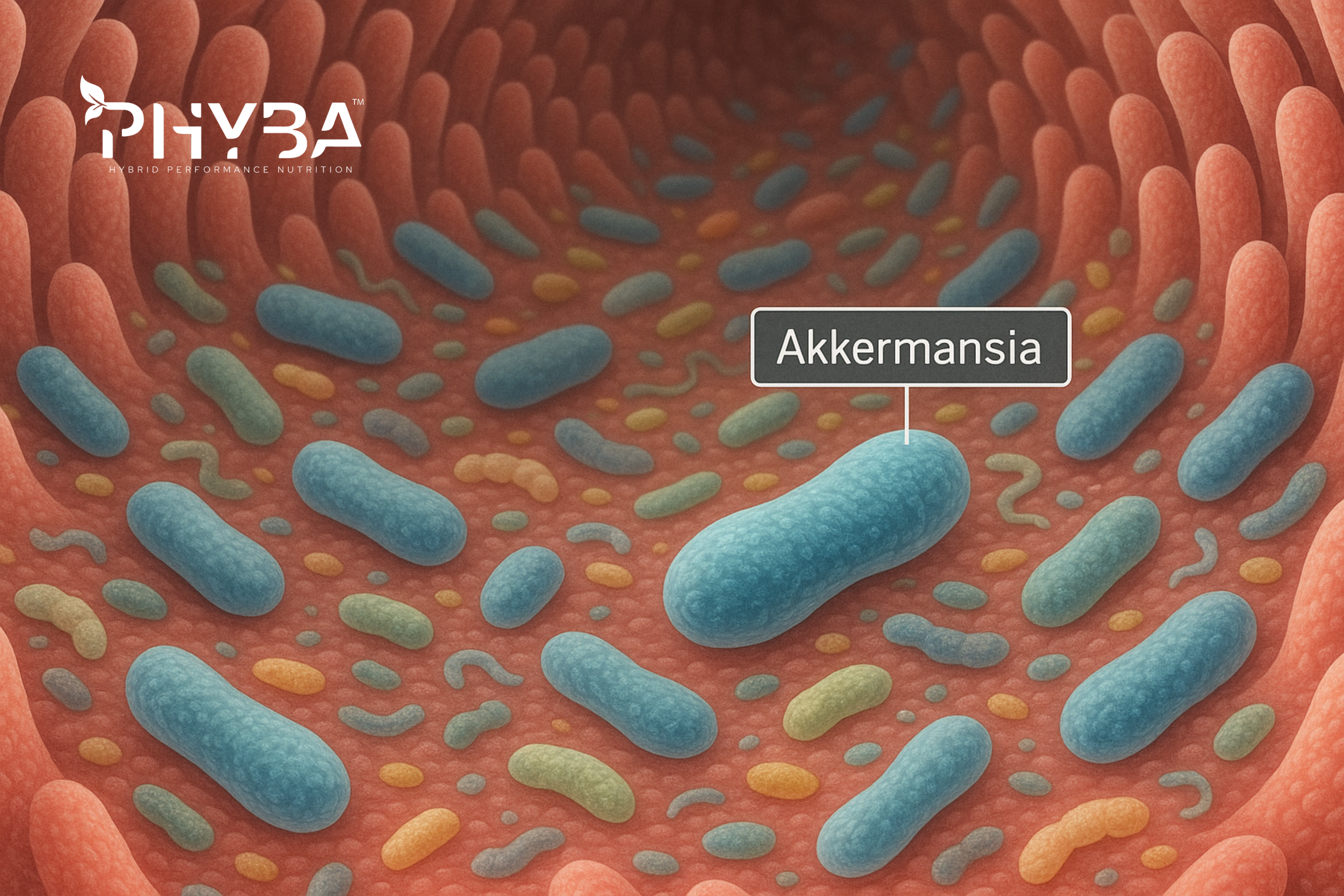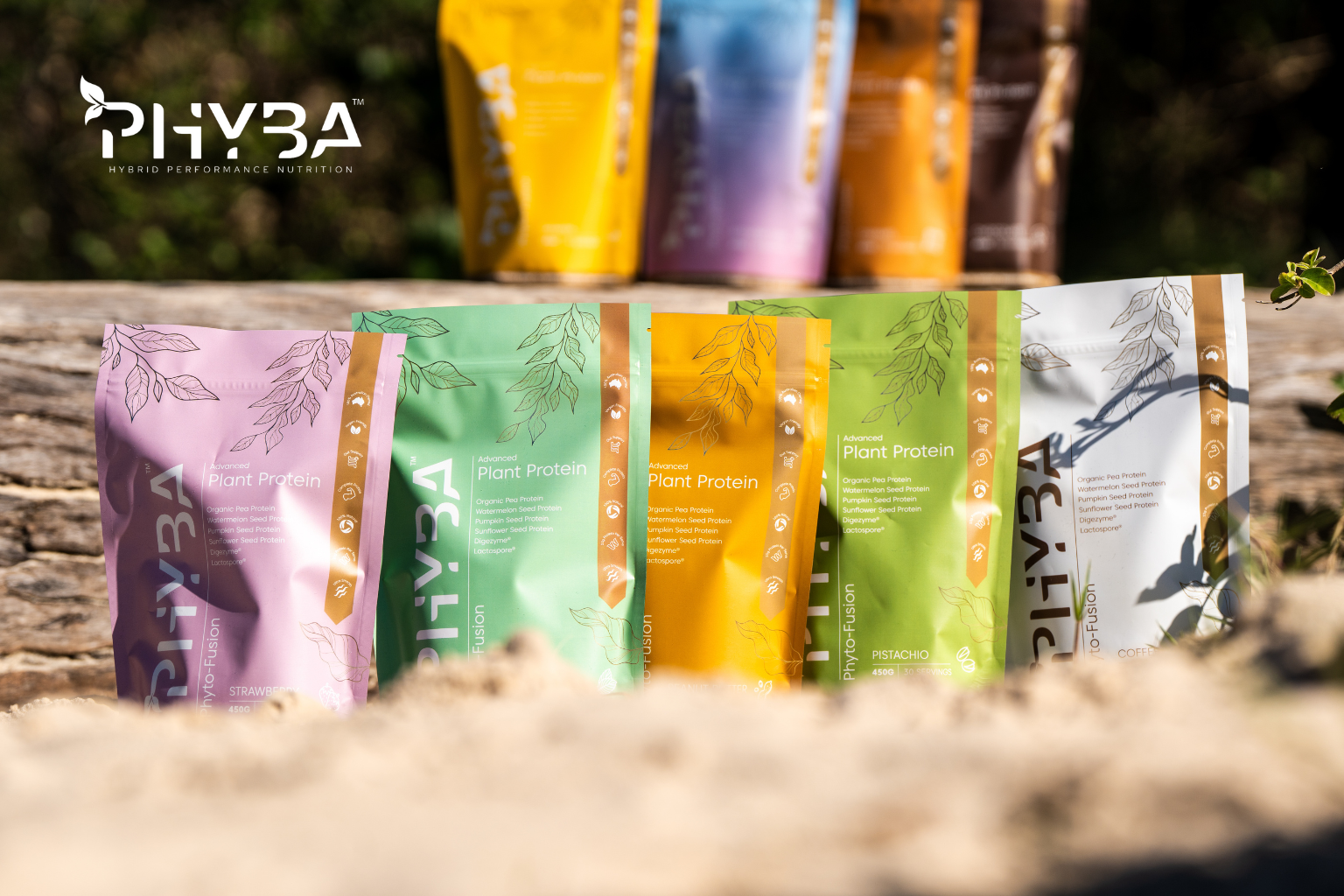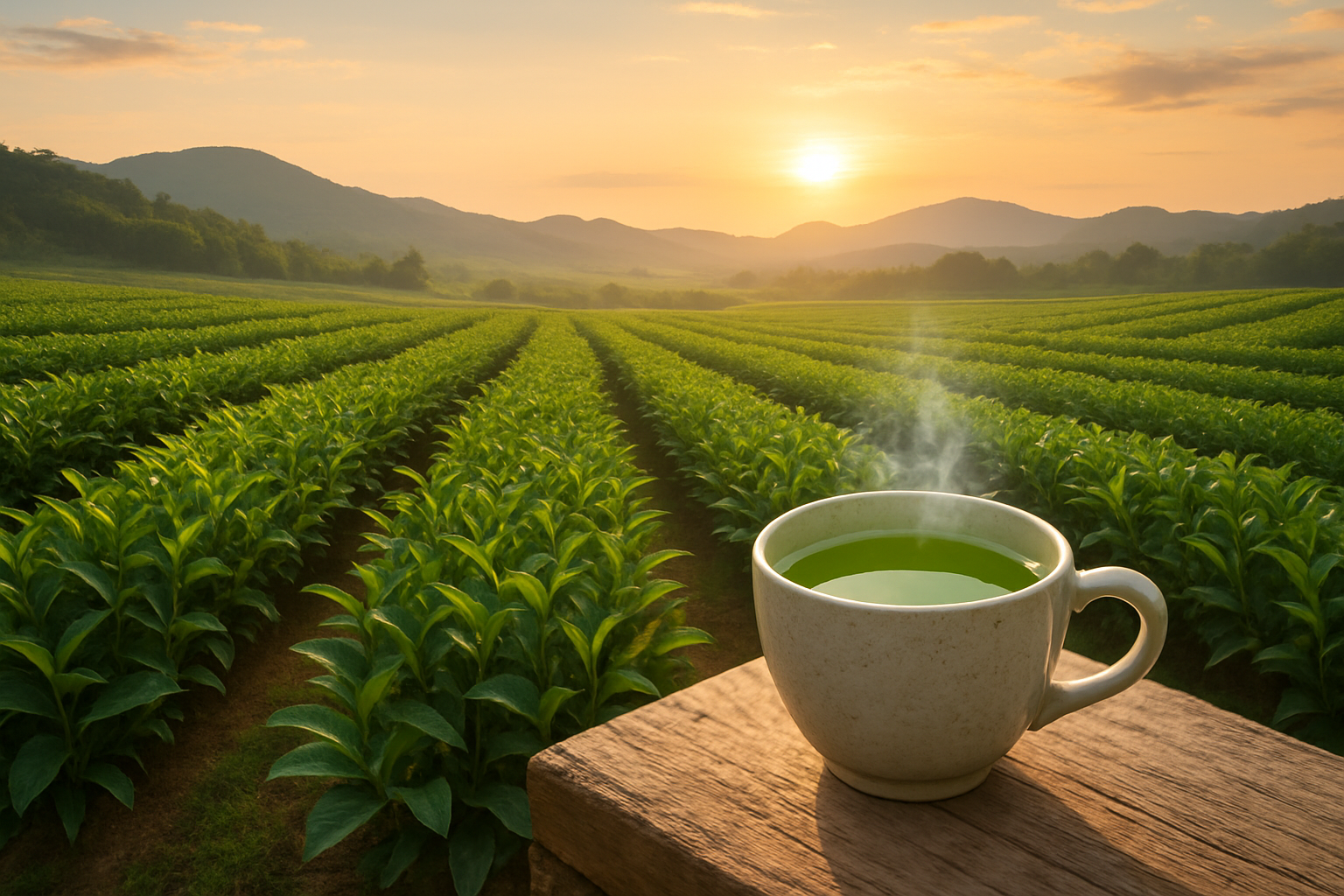In the vast universe of gut microbes, one bacterium is rapidly gaining attention for its profound effects on health: Akkermansia muciniphila found within PHYBAS's SOLARBEAM AM FORMULA. Once obscure, this mucin-loving microbe is now considered a next-generation probiotic—a microscopic ally that could help reshape our immune health, metabolic balance, and even physical performance.
🧫 What is Akkermansia muciniphila?
Akkermansia muciniphila is a commensal bacterium that naturally resides in the human gut, particularly in the mucus layer that lines the intestinal wall. Discovered in 2004, it feeds on mucin—a key component of our gut lining. While that might sound concerning, this behavior actually stimulates the production of more mucus, strengthening the gut barrier and promoting intestinal health.
🛡️ Immunity: The Gut’s Guardian
1. Strengthens the Gut Barrier
Akkermansia helps maintain the integrity of the intestinal lining, reducing "leaky gut"—a condition linked to inflammation and autoimmunity. By enhancing mucin turnover and tight junction proteins, it prevents the entry of harmful microbes into the bloodstream.
2. Regulates Inflammation
It produces short-chain fatty acids (SCFAs) like acetate and propionate, which help regulate immune responses and reduce chronic inflammation—a key driver of diseases like IBD, arthritis, and even neuroinflammation.
3. Balances the Immune System
Studies suggest Akkermansia modulates T-regulatory cells and innate immune pathways. This can help tune immune responses—especially important in conditions like allergies, asthma, and autoimmune diseases.
🧠 Interesting Fact: Patients with multiple sclerosis and lupus show reduced Akkermansia levels, while boosting it can help restore immune balance in mouse models.
🏃♂️ Athletic Performance: Gut-Muscle Connection
1. Boosts Energy Efficiency
Akkermansia improves mitochondrial function and fatty acid oxidation, which enhances energy production. This means better endurance and recovery for athletes.
2. Enhances Metabolic Flexibility
It improves insulin sensitivity and glucose uptake in muscle cells, making it easier for the body to switch between carbs and fat for energy—crucial during long or high-intensity workouts.
3. Reduces Exercise-Induced Inflammation
Regular physical activity can lead to micro-injuries and oxidative stress. Akkermansia helps manage this stress through its anti-inflammatory properties and gut-barrier fortification.
🧬 Clinical Insight: A 2019 study found that elite cyclists had higher levels of Akkermansia, suggesting a natural link between high performance and this beneficial bacterium.
⏳ Longevity: A Microbial Fountain of Youth?
1. Associated with Healthy Aging
Studies show that centenarians often have higher Akkermansia levels than younger adults. Its abundance correlates with metabolic health, lower inflammation, and better immune function—all hallmarks of healthy aging.
2. Promotes Metabolic Resilience
It supports lipid metabolism, improves insulin resistance, and lowers cholesterol—risk factors that accelerate aging and cardiovascular disease.
3. Synergy with Caloric Restriction
Caloric restriction is a well-known strategy to extend lifespan in many organisms. Interestingly, caloric restriction naturally boosts Akkermansia abundance, possibly mediating some of its life-extending effects.
🍽️ How to Naturally Boost Akkermansia
You can support the growth of Akkermansia without supplements through:
✅ Polyphenol-rich foods
-
Cranberries
-
Pomegranate
-
Green tea
-
Cocoa
✅ Prebiotic fibers
-
Inulin (from chicory root, onions)
-
Resistant starches (green bananas, oats)
✅ Fasting and time-restricted eating
These increase mucin production, which feeds Akkermansia.
✅ Healthy fats
Olive oil, nuts, and omega-3s help create a gut environment where Akkermansia thrives.
💊 Should You Supplement?
Live Akkermansia muciniphila supplements are now in development, including pasteurized versions shown to retain benefits while improving shelf stability.
In 2021, the European Food Safety Authority (EFSA) granted the first approval for a pasteurized Akkermansia supplement as a novel food—a potential game-changer in microbiome therapeutics.
🚀 The Future of Akkermansia
With its triple-action potential—immunity, performance, longevity—Akkermansia is at the forefront of microbiome medicine. Whether you're an athlete, biohacker, or someone seeking healthy aging, nurturing this microbe could become part of your daily routine.
While more large-scale human studies are underway, the early science is promising. It’s clear that Akkermansia muciniphila is not just a gut bug—it’s a guardian of systemic health.
🧾 References & Studies
-
Plovier, H., et al. (2017). A purified membrane protein from Akkermansia muciniphila improves metabolism in obese and diabetic mice. Nature Medicine, 23(1), 107–113. https://doi.org/10.1038/nm.4236
-
Zhang, T., et al. (2021). Akkermansia muciniphila is negatively correlated with immune-related adverse events in lung cancer patients treated with immune checkpoint inhibitors. Frontiers in Immunology, 12. https://doi.org/10.3389/fimmu.2021.766761
-
Dao, M.C., et al. (2016). Akkermansia muciniphila and improved metabolic health during a dietary intervention in obesity: relationship with gut microbiome richness and ecology. Gut, 65(3), 426–436. https://doi.org/10.1136/gutjnl-2014-308778
-
Cani, P.D., et al. (2022). Gut microbiota at the intersection of immunity and metabolism. Nature Reviews Immunology, 22, 401–416. https://doi.org/10.1038/s41577-021-00628-2
-
Ottman, N., et al. (2017). The function of Akkermansia muciniphila in the human intestinal tract. Mucosal Immunology, 10(6), 1156–1163. https://doi.org/10.1038/mi.2017.23
-
Depommier, C., et al. (2019). Supplementation with pasteurized A. muciniphila in overweight and obese humans: a proof-of-concept exploratory study. Nature Medicine, 25(7), 1096–1103. https://doi.org/10.1038/s41591-019-0495-2
-
Everard, A., et al. (2013). Cross-talk between Akkermansia muciniphila and intestinal epithelium controls diet-induced obesity. PNAS, 110(22), 9066–9071. https://doi.org/10.1073/pnas.1219451110
-
Schneeberger, M., et al. (2015). Akkermansia muciniphila inversely correlates with obesity markers in mice and humans. Obesity, 23(10), 1989–1999. https://doi.org/10.1002/oby.21145
Optimizing your gut microbiome is no longer optional—it's essential for thriving in a modern world.



